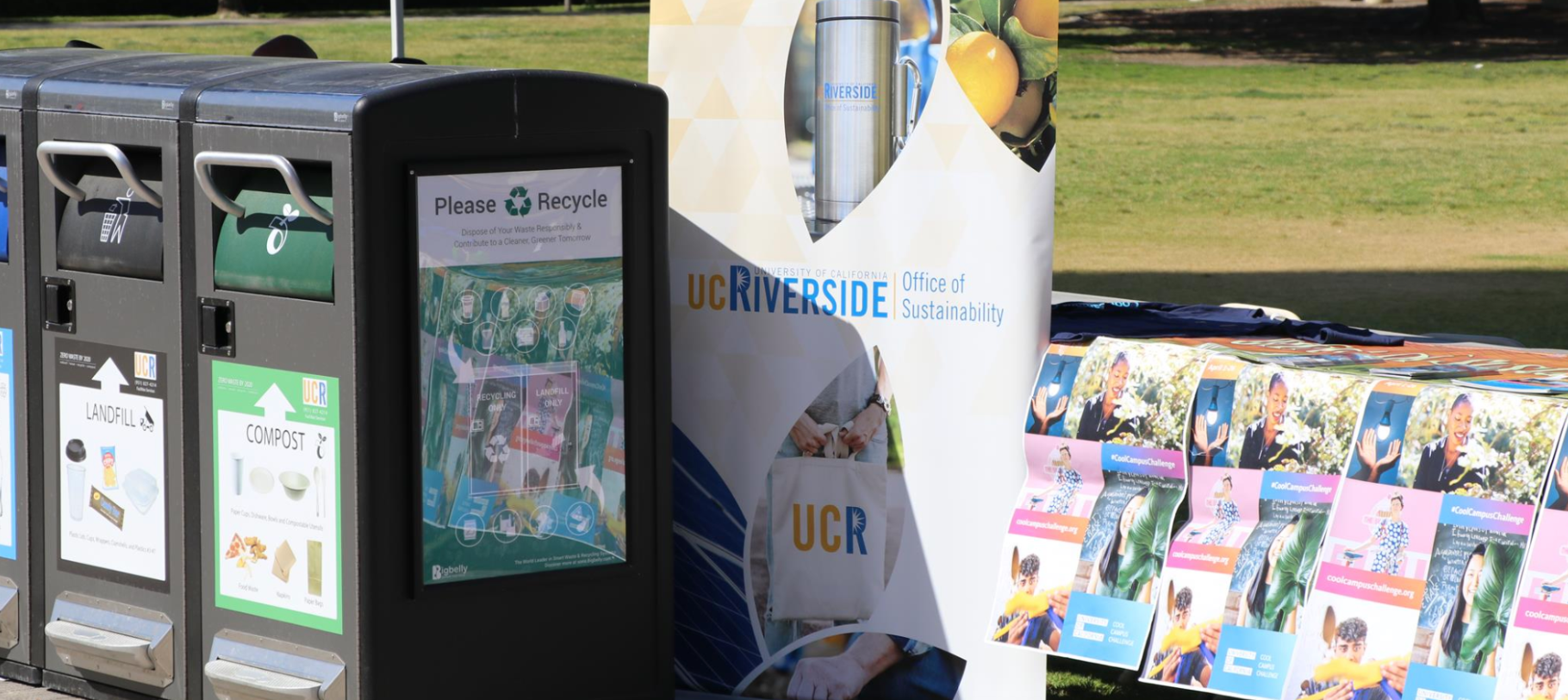Office of Sustainability

Zero Waste Recycling Program
Zero Waste Operations:
The Zero Waste team, in collaboration with campus partners, is striving to attain a state of net zero waste. This goal is pursued through diverse initiatives on campus, including the implementation of BigBelly Bins, Compost Recycling, Lab Glove Recycling, and E-Waste disposal. Learn more about these operations below.
-
Big-Belly Bins
What are BigBelly Bins?
BigBelly bins bring a more uniform and modern aesthetic to waste management on campus. Positioned at the hotspots on campus, these 12 new bins provided up to three times as much waste as the previous containers.
This is due to its compactor quality, powered by the solar panels placed on the top. The bins come in three (landfill trash, recyclables, and compost).
These bins aid in the effort to implement a unified recycling message across campus and promote composting as another waste diversion stream. Facilities plans to make a complete conversion to these bins as the years progress so keep an eye out for these sleek bins.
Find more information in this 2019 article, How UCR’s new smart waste bins will increase efficiency, create more open space.
Food Recovery
Over tens of thousands of pounds of surplus food is donated to Inland Harvest & R'pantry annually.
Food Waste Prevention
FoodPro menu management system is used to forecast patron counts, inventory food, and generate food purchases and production orders which help to prevent food waste.
Single Use Plastics Reduction
About half of disposable food wares and accessories are certified compostable. In Spring 2023, bottled water in C-stores and vending machines to canned water led to the elimination of 68% of plastic beverage bottles on campus.
-
Compost Recycling
Food waste is an issue for many universities, and one UCR aims to reduce it. By composting, we allow our food waste to immediately start it’s natural decomposing process rather than having to go to the landfill where, depending on the type of food, can take years to decompose. Food waste from Dining Halls has been composted since 2009, saving 2,417 metric tons of CO2E between 2009-2022. This is roughly equivalent to taking 538 cars off the road for a year. For this reason, composting bins have been made available at various locations, such as the HUB or Glen Mor Market. Keep an eye out for those green bins to help reduce food waste.
-
Shredding / E-Waste / Recycling
Students interested in helping the campus increase its diversion rate and contributing to saving the environment are working with Facilities Services. This program enables the campus recycling and waste conversation to be extended to students which brings a fresh outlook on waste diversion. Along with paper and cardboard, the student recycling program added Ivan’s coffee grounds to their collection route. There are plans to use these coffee grounds to help grow mushrooms for the residential hall’s mushroom burger via a vermicomposting system still in the works of being established at UCR.
In addition to making it easier to acquire items, receiving services can help students with the proper disposal of items. UC Riverside offers Document Shredding, E-Waste Disposal, and Toner Cartridge Recycling programs for convenient disposal. Learn more about these services.
